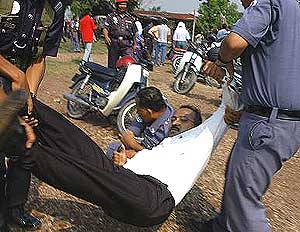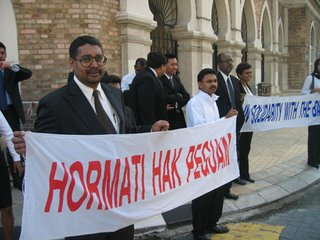
The Bar Council’s position is that capital punishment should be abolished.
No legal system in the world is foolproof or error-free. No matter how procedurally fair the system is, how stringent the rules of evidence may be, how much reliance is placed on advanced and scientific investigation methods, or how many opportunities of appeal are afforded; one cannot rule out the possibility of error. Experience all over the world shows that this possibility is a real and not a theoretical one. Perfection and absolute correctness are neither expected of, nor attainable by, any legal system.
Experience further shows that from time to time the errors made, when subsequently discovered, are promptly remedied. For example, it is reported that in the last 33 years, 125 prisoners who were convicted and sentenced to death in the USA have been subsequently released after evidence had emerged (thankfully before their executions) that they did not commit the crimes. This opportunity to right a wrong will, however, not be available if the death sentence on the person has been carried out; in which event we as a society are collectively responsible for having sent an innocent man or woman to the gallows.
This is one of the reasons why capital punishment is unacceptable, especially in our justice system that has as one of its pillars the belief that it is better for 9 guilty men to walk free than for 1 innocent man to be wrongly convicted; what more if that innocent man is to be put to death.
It is also a myth, unsupported by empirical evidence, that capital punishment operates as a more effective deterrent on crime than, say, life imprisonment.
Death penalty is a cruel and extreme form of punishment. Keeping a person on death row waiting indefinitely or for a long period of time adds to its cruelty. The uncertain and indefinite waiting and fearing for the final moment constitutes inhumane psychological torture, the nature of which those who have not suffered the experience will not even begin to comprehend. It is made worse by the fact that they are kept in solitary confinement most of the time; which means that they have to face the suffering all alone.
We are given to understand that one reason why inmates are kept in limbo for long periods of time is that the clemency process must be exhausted before a death sentence can be carried out. There is long delay in this process, because the Pardons Board convenes infrequently. This issue needs urgent attention, as long as capital punishment remains in our statute books.
The Bar Council renews its call for the abolition of capital punishment, and for a moratorium pending its abolition.
We are aware that a considerable portion of Malaysian society feels that the death penalty should remain, arguing that many (and some will say most) of these inmates have indeed committed heinous crimes, have gone through the legal process, and have been found guilty. In short, the impulsive reaction is that “they deserve it” and “they have to pay for the crimes they committed”.
There is no argument that guilty persons ought to receive punishment. But that is not the same as saying that they therefore ought to die. Even in the case of a convicted murderer, the death penalty is a reflection of the notion that “an eye for an eye” provides the best form of justice, a concept that we no longer embrace nor practise today.
This is not forgetting that from time to time there will be those who are in fact wrongly convicted, no matter how carefully the system operates. Is putting innocent men and women (or even if just one of them) to death, an acceptable feature in our system of justice, because society wishes to punish the guilty ones by employing this most extreme and irredeemable process?
We are glad that Suhakam is looking into the issues concerning capital punishment, and we hope that change will soon come. The Bar Council will be most happy to work with Suhakam on the same.
Dated 28 June 2006
Yeo Yang Poh
Chairman
Bar Council














